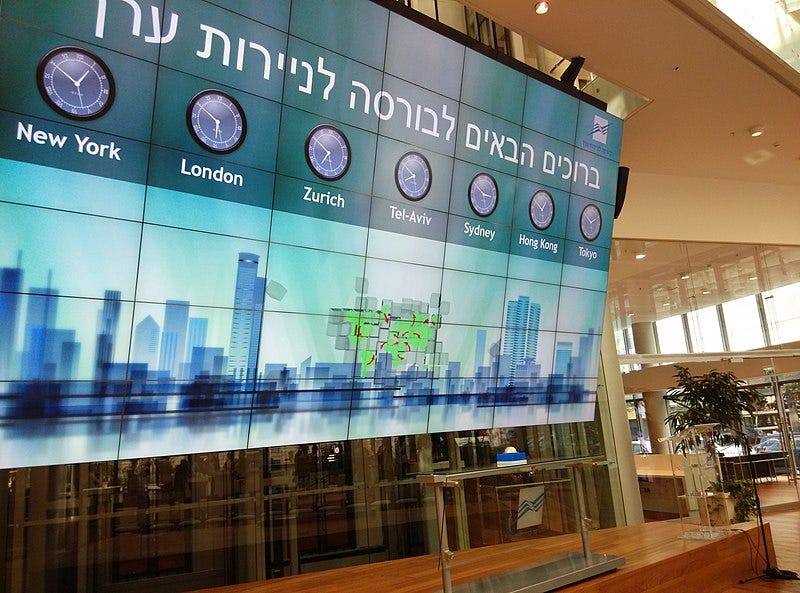Israel and Hamas—through a builder’s lens
A conversation with two friends.

Readers of this Substack know I generally stay away from politics in my writing, for many different reasons. It's not my area of expertise, and it has a way of provoking the kind of reflex, emotion-driven reactions that can stop thinking short, whereas here I am trying to promote thinking from first principles.
Then again, my relationship to what’s happening in Israel and Gaza today goes far beyond politics. It connects to my most personal strivings as a psychologist and a builder of builders; to my life story as a Jewish refugee who might just as easily have ended up in Israel if our U.S. Visas didn’t happen to come through when they did; and to my fundamental convictions about the nature and proper goals of human existence.
So, with that said, I recently sat down for an impromptu podcast conversation with my friend and colleague Greg Salmieri, a philosopher, and our mutual friend Elan Journo, a Middle East foreign policy analyst, to put words to what we were all thinking and see if we could arrive at some constructive conclusions.
Below is an edited transcript of our conversation, which we have collaboratively revised and reorganized around the questions most relevant to the themes of this newsletter.
Introductions and framing
Greg Salmieri: This is an episode of Choose Your Issues, the podcast of the Objectivist Program in the Salem Center at the University of Texas at Austin. I'm Greg Salmieri. I'm a senior scholar of philosophy in the Center and I teach philosophy at the university.
Joining me today first is Gena Gorlin, who teaches in the psychology department and is an affiliate of our Program. This episode grew out of a conversation she and I were having last week; about whether we have anything to say about an issue that's on everybody's mind now, the horrific attacks by Hamas on Israel—and, more generally, the longstanding conflict between Israel and the Palestinians. Gena, let’s talk briefly about our thinking on this, and why you want to do a podcast episode, and then we’ll bring on a guest to help us delve further into the issue.
Gena Gorlin: Thanks, Greg. When Ukraine was attacked by Russia, that was my probably one other departure from the nonpolitical restriction I generally put on myself, because, as you know, I'm from Ukraine. I felt so personally connected to what was happening there, and it was so salient to me that, wow, Ukraine has become a country of builders in a way I hadn't appreciated. Suddenly, through this really devastating crisis, it became a shining example in a lot of people's eyes around the world that Ukraine is (at least compared to its neighbors and to its past) now a country where technology and freedom, and the kind of modern ambitiousness and scrappiness and entrepreneurial thinking that I write about, are flourishing. I wanted to defend that; to support and promote it.
In some ways, I feel even more personally connected to Israel: I've been there, I have friends there, I have family there; but also, from a builder standpoint, I use a bunch of their products. My life is better because of Wix.com, and because of Teva Pharmaceuticals, which makes the medication without which I wouldn't function. And it feels like a beacon of civilization in certain ways, of just the sort that I'm trying to bolster, that I'm trying to support. And it's under attack.


